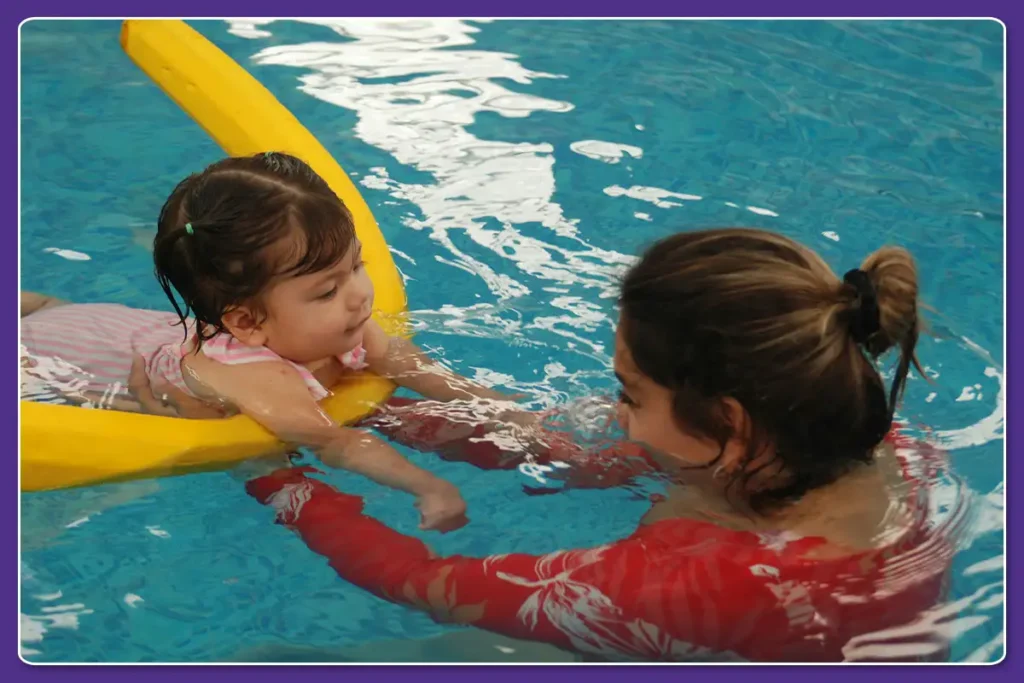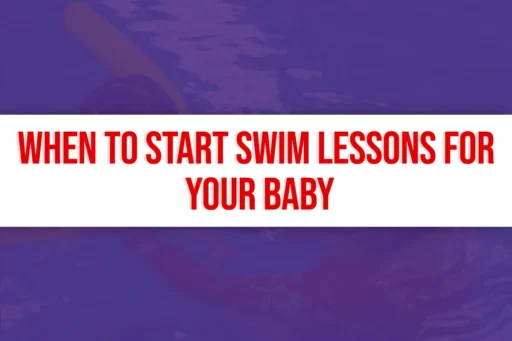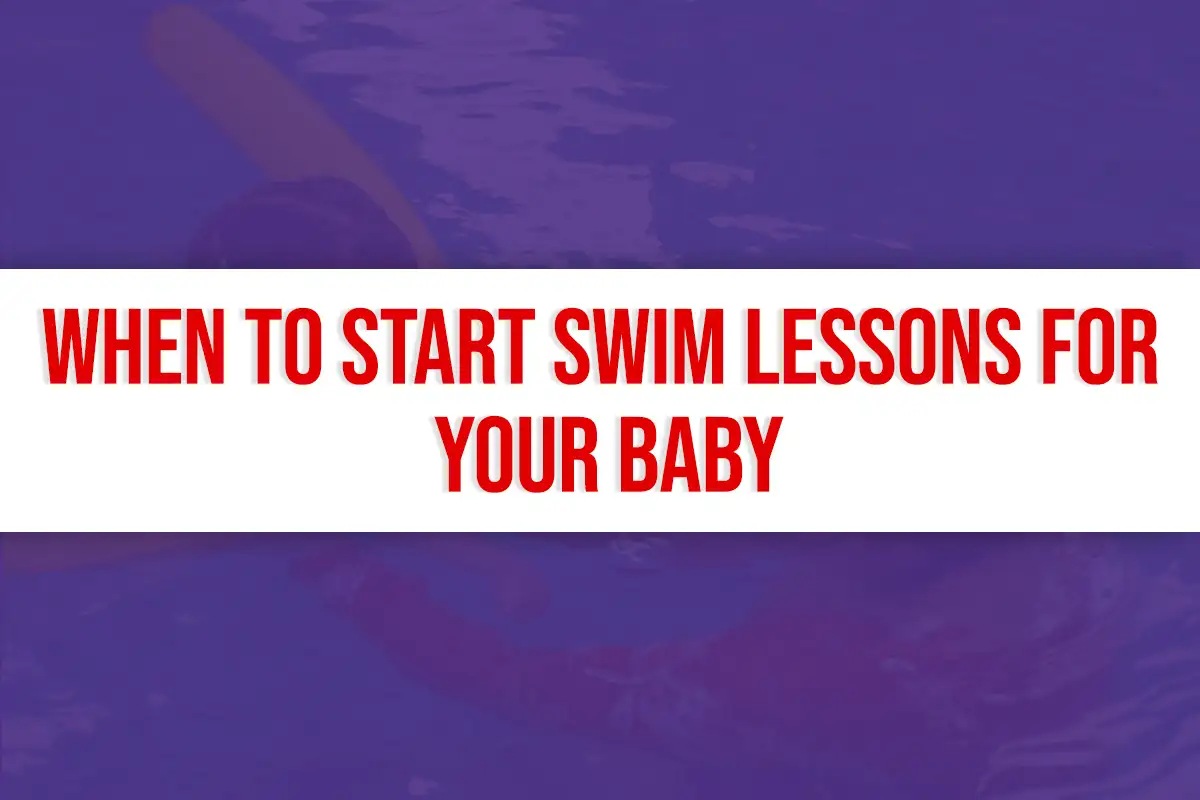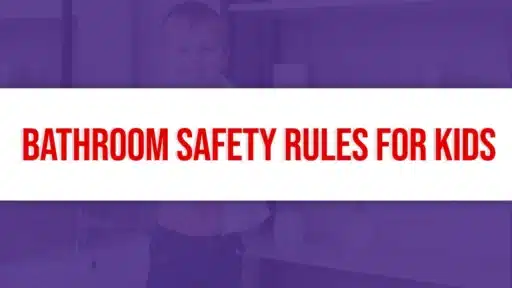When should you start swim lessons for your baby? Babies can begin swim lessons as early as six months old.
Starting early helps babies get comfortable in water. Introducing your baby to swimming at a young age has many benefits. It boosts their confidence, improves motor skills, and ensures safety around water. Babies naturally have a reflex that makes them hold their breath underwater.
This makes early swim lessons effective and safe. Many parents wonder about the right time for these lessons. It is crucial to understand the signs and readiness of your baby. This way, you can ensure a positive experience. In this blog, we’ll explore the best time to start swim lessons for your baby. We will also share tips to make the experience enjoyable for both you and your little one.

Introduction To Baby Swim Lessons
Starting swim lessons early can be a wonderful experience for both babies and parents. Understanding when to begin is important. Knowing the benefits and addressing common concerns can help you make an informed decision.
Benefits Of Early Swim Lessons
Early swim lessons can boost your baby’s confidence in the water. They help develop basic swimming skills. Babies who swim early often learn faster. They can also improve their motor skills. Swimming can be a fun way for babies to get exercise. It can help them sleep better too. Early lessons can also strengthen the bond between parent and child. The time spent together in the water can be very special.
Common Concerns For Parents
Some parents worry about water safety. It’s normal to have concerns. Always choose a class with certified instructors. They ensure the environment is safe. Another concern is the temperature of the water. Make sure the pool is warm enough for your baby. Some parents fear their baby might swallow water. Instructors are trained to handle such situations. It’s also common to worry about infections. Pools used for lessons are usually well-maintained and clean. Talking to other parents can also help ease your concerns. They might have helpful tips and experiences to share.
Ideal Age For Starting Swim Lessons
Teaching your baby to swim can be a delightful experience. You might wonder about the best time to start. The answer varies. It depends on several factors. Let’s explore the ideal age for starting swim lessons for your baby.
Recommended Starting Age
Experts suggest starting swim lessons for babies at around six months. At this age, babies are more comfortable in the water. They also have better control over their movements. These skills help them learn faster.
Swim lessons at this age focus on water safety and fun. Babies learn basic skills like kicking and floating. They also get used to being in the water. This early exposure can make them more confident swimmers later on.
Developmental Readiness
Every baby is different. Not all babies are ready for swim lessons at the same age. It’s important to consider your baby’s developmental readiness.
- Can your baby hold their head up? This is crucial for safe swimming.
- Does your baby show interest in water? Babies who enjoy baths may adapt better to swim lessons.
- Is your baby comfortable around strangers? Swim lessons often involve new people and environments.
If your baby meets these milestones, they might be ready for swim lessons. Always consult your pediatrician first. They can provide guidance based on your baby’s health and development.
Choosing The Right Swim Program
Choosing the right swim program for your baby is crucial. The right program ensures safety and promotes learning. But how do you choose the best one? Let’s look at different types and what to consider in an instructor.
Types Of Swim Programs
There are several types of swim programs for babies. Parent-child classes are very popular. They allow parents to be in the water with their baby. This helps build trust and confidence. Another option is infant self-rescue classes. These teach babies to float on their backs if they fall into water. Group lessons are also available. These classes have several babies and one or more instructors. Private lessons offer one-on-one instruction. Each program has its own benefits. Consider your baby’s needs and comfort level when choosing a program.
Finding Qualified Instructors
Qualified instructors are essential for a good swim program. Look for instructors with certifications. They should have training from recognized organizations. Check their experience with babies. Ask about their teaching methods. A good instructor is patient and attentive. They should make the lessons fun and engaging. Safety is a top priority. Instructors should know CPR and first aid. Read reviews and ask for recommendations. Visit the facility and observe a class if possible. This helps you see the instructor in action. Choose an instructor who makes you and your baby feel comfortable.
Safety Precautions
Starting swim lessons for your baby can enhance safety and build confidence in water. Experts suggest beginning around six months old for the best experience.
Swimming is fun. But safety is crucial, especially for babies. Starting swim lessons early can be exciting. Yet, it’s essential to take safety measures. Here are some key points to ensure your baby’s safety.
Ensuring Pool Safety
Check the pool area before entering. Make sure the water is clean. Ensure there are no sharp objects. Use a pool cover when not in use. Install pool fences to prevent accidents. Keep rescue equipment nearby. Always keep the pool area tidy.
Supervision Tips
Always keep an eye on your baby. Never leave them alone in the pool. Stay within arm’s reach. Avoid distractions like phones. Have another adult help if possible. Take turns watching the baby. Supervision is the best way to prevent accidents. “`
Preparing Your Baby For Swim Lessons
Preparing your baby for swim lessons can be a rewarding experience. It helps build their confidence in the water. Start with simple steps at home. This way, your baby will feel more comfortable during lessons. Let’s explore some key areas to focus on.
Introducing Water At Home
Begin by introducing your baby to water in the bathtub. Let them splash and play during bath time. This creates a positive association with water. Keep the water warm and the environment calm. Gradually, increase the amount of water to help them adjust.
Use toys to make bath time fun. Floating toys can grab their attention. Encourage gentle splashing. This helps them get used to the sensation of water on their face. Always stay close to ensure their safety.
Swim Gear Essentials
Having the right swim gear is important. It makes swim lessons more enjoyable for your baby. Start with a well-fitting swim diaper. This keeps accidents contained. Choose one that is comfortable and easy to put on.
Consider a baby swimsuit made from soft, quick-drying material. This prevents chafing and keeps your baby comfortable. A swim cap can also be useful. It keeps hair out of their eyes and reduces drag in the water.
Goggles are another essential item. They protect your baby’s eyes from chlorine. Choose goggles that fit well and are easy to adjust. Look for ones with soft, silicone seals for added comfort.
Don’t forget to bring a towel and a change of clothes. Keep your baby warm and dry after the lesson. A hooded towel can be especially handy. It wraps around your baby and keeps them cozy.
What To Expect In Baby Swim Lessons
When starting swim lessons for your baby, it’s important to know what to expect. Baby swim lessons are designed to be fun and educational. They help your baby get comfortable in the water while also teaching basic safety skills. Here’s a closer look at what you can expect in baby swim lessons.
Lesson Structure
Baby swim lessons usually last about 30 minutes. Sessions are short to keep your baby engaged and happy. Lessons often include both group and individual activities. This structure helps babies socialize and learn from each other. The instructor will guide the activities and ensure safety.
Common Activities
During baby swim lessons, you can expect a variety of activities. Singing songs is common to keep babies entertained and relaxed. Gentle splashing games help babies get used to the water. Floating exercises teach babies how to stay buoyant. Parents often participate, providing support and encouragement. These activities are designed to make learning enjoyable for your baby.
Tips For A Positive Experience
Starting swim lessons for your baby can be an exciting journey. Ensuring a positive experience is crucial for building their love for the water. Here are some helpful tips to make swim lessons enjoyable and effective for your little one.
Building Confidence
Building confidence in the water is essential for babies. Here are some tips to help:
- Start early: Introduce your baby to water as early as six months old.
- Use bath time: Make bath time fun and relaxing to get them used to water.
- Sing songs: Singing familiar songs can help calm your baby in the water.
- Gentle splashing: Encourage gentle splashing to make them comfortable with water on their face.
Handling Fear Of Water
Some babies may have a fear of water. It’s important to address this early. Here are a few strategies:
- Stay calm: Your baby can sense your emotions. Stay calm and relaxed in the water.
- Small steps: Gradually introduce them to deeper water. Start with shallow areas first.
- Positive reinforcement: Praise your baby for small achievements. Use encouraging words and smiles.
- Water toys: Bring their favorite toys to the pool. This can make the experience more enjoyable.
By following these tips, you can help your baby build confidence and handle their fear of water. Creating a positive experience will set the foundation for a lifetime of swimming enjoyment.
Frequently Asked Questions
Babies can start swim lessons as early as 6 months old. It’s important to choose a class that focuses on water safety and comfort.
Yes, swim lessons are safe for babies when conducted by certified instructors. Always ensure the class emphasizes safety and gentle introduction to water.
Early swim lessons can help babies become comfortable in water. They also promote motor skills, coordination, and water safety awareness.
Baby swim lessons typically last 20-30 minutes. This duration is ideal to keep babies engaged without tiring them out.
Conclusion
Starting swim lessons early offers many benefits for your baby. Water safety skills are crucial. Babies also enjoy fun water activities. Remember to choose age-appropriate lessons. Look for certified instructors. Always prioritize safety and comfort. Trust your instincts as a parent.
Start when you and your baby feel ready. Swimming can be a joyous experience. Make it a positive journey. Enjoy watching your little one grow confident in the water.







